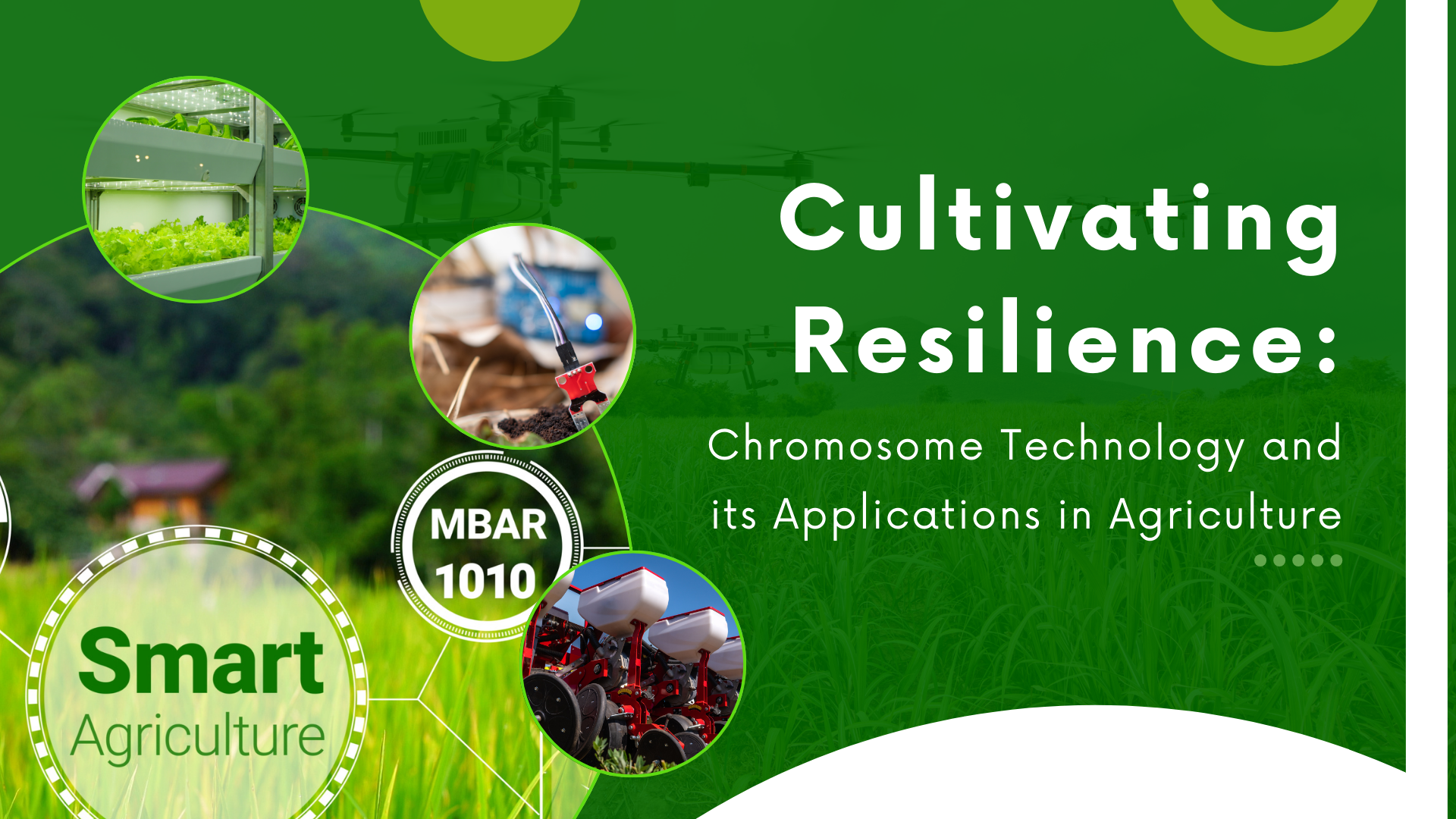
“Science and technology coupled with improved human capital have been powerful drivers of positive change in the performance and evolution of smallholder systems”.
(Food & Agriculture Organization Of The United Nations)
“If we can get biotechnology
traits, we may be able to turn
wheat around”
-DaleSchuler
Chromosome technology in agriculture continues to evolve with advancements in molecular biology, genomics, and gene-editing technologies. These tools empower plant scientists and breeders to develop crops that are more resilient, productive, and sustainable to meet the challenges of global food security.
The field of chromosome technology and related discoveries involve the contributions of numerous scientists over several decades.
Numerous scientists and researchers in the fields of molecular biology, genetics, and genomics have contributed to the development of chromosome technology in agriculture. Techniques such as PCR (Polymerase Chain Reaction), DNA sequencing, and gene editing tools like CRISPR-Cas9 have revolutionized the study and manipulation of chromosomes.
It’s important to note that the discoveries and advancements in chromosome technology are the result of collaborative efforts across the scientific community, and many scientists have played crucial roles in building the current understanding of chromosomes and their applications in agriculture
Dr. Susan Preuss is known for her work in plant genetics and developmental biology. She has researched Arabidopsis thaliana, a model organism for plant studies, and has contributed to understanding the genetic regulation of plant development, including flower and seed development
Chromosome technology in agriculture refers to the application of genetic and genomic knowledge related to plant chromosomes for crop improvement. The study and manipulation of chromosomes play a crucial role in developing improved crop varieties with desirable traits.
Key Aspects of chromosome technology in agriculture
- Genetic Mapping: Chromosome technology involves creating genetic maps that identify the location of genes on specific chromosomes. This information helps plant breeders understand the inheritance of traits and facilitates the selection of desired genes during the breeding process.
- Marker-Assisted Selection (MAS): MAS is a technique that uses molecular markers, which are specific DNA sequences associated with particular genes, to assist in traditional plant breeding. By identifying and tracking markers linked to desired traits, plant breeders can select plants with the desired characteristics more efficiently.
- Cytogenetics: Cytogenetics is the study of the structure and function of chromosomes. In agriculture, cytogenetic techniques are used to understand chromosome behavior during cell division, identify chromosomal abnormalities, and manipulate chromosomes for breeding purposes.
- Genome Sequencing: Advances in genome sequencing technologies have allowed researchers to sequence entire plant genomes. This comprehensive genomic information provides insights into the organization of genes on chromosomes, their functions, and potential interactions.
- Chromosome Engineering: Chromosome engineering involves the manipulation of specific chromosomes to introduce or delete genes, rearrange genetic material, or induce chromosomal mutations. This technique allows for the development of crops with improved traits, such as resistance to pests, diseases, or environmental stresses.
- Hybridization and Polyploidy: Manipulating the chromosome number through hybridization and polyploidy (doubling the chromosome sets) is a common strategy in plant breeding. This can result in improved traits, increased vigor, and better adaptation to specific environmental conditions.
- CRISPR-Cas9 Technology: The revolutionary CRISPR-Cas9 gene-editing technology enables precise modification of specific genes on chromosomes. This tool has immense potential for creating crops with enhanced traits, such as increased yield, improved nutritional content, and resistance to diseases.
- Functional Genomics: Studying the function of genes on chromosomes is essential for understanding how they contribute to specific traits. Functional genomics involves identifying and characterizing the role of individual genes, providing valuable information for targeted crop improvement.
- Chromosome-Specific Breeding Programs: Tailoring breeding programs to focus on specific chromosomes or chromosomal regions associated with desirable traits allows for more efficient and targeted crop improvement efforts.
Genetically engineered crops have proliferated into the major crop-producing countries of the world. The induction of both Bt toxin and herbicide resistance genes from micro-organisms into plants has changed agriculture with effective weed control and a decreased use of chemical pesticides. Genetic engineering is the most significant development in agriculture in the last century and has enormous potential in the future to overcome the growing demand for agricultural products.
GM crops have been largely successful in providing numerous benefits to growers worldwide. We will explore some of them in this article.
Golden Rice is a genetically engineered crop enriched with beta-carotene, a precursor of vitamin A. Vitamin A deficiency is a major health issue in many developing countries, leading to blindness and other health problems.
By consuming Golden Rice, individuals in regions where vitamin A deficiency is prevalent can improve their vitamin A intake, potentially reducing the incidence of blindness and other health issues associated with this deficiency
The Arctic apple (genetically engineered) has the special ability to resist browning after being cut, which protects its flavor and nutritional value.
The Innate Potato is genetically modified to resist bruising and browning, reducing waste and potentially lowering the need for certain chemical treatments.
Rainbow Papaya is genetically engineered to resist the papaya ringspot virus, a common and devastating disease that affects papaya plants.
Roundup Ready Alfalfa is engineered to tolerate the herbicide glyphosate (Roundup), allowing farmers to control weeds more effectively without harming the alfalfa crop.
Genetic engineering allows for the creation of specific health benefits, such as producing oils with higher levels of omega-3 fatty acids. This can lead to the development of functional foods that offer additional health advantages to consumers.
DuPont developed genetically modified soybeans that reduce trans-fat production, increase soybean oil shelf life, and create a generally healthier cooking oil. The GMO soybean oil has 0 grams of trans-fat and more of the monounsaturated fats that are considered heart-healthy. They are also insect-resistant, and herbicide tolerant.
It’s important to note that public perception and acceptance of genetically engineered plants vary, and concerns have been raised regarding safety, environmental impact, and ethical considerations. Regulatory agencies in many countries assess the safety of GMOs before they are approved for commercial use. Ongoing research and transparent communication are essential to address these concerns and ensure the responsible development and deployment of genetically engineered crops.
Signup For AgriNext Conference Newsletter

